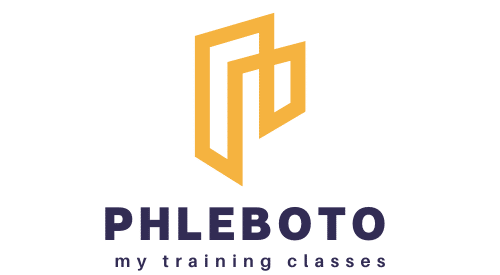What Are the Effective Tactics for Building a Strong Online Brand for Small Businesses?

In a digital age, where the online environment is more competitive than ever, successful branding has become essential for small businesses. The right strategy can help you connect with your target audience, build loyalty, and drive sales. But how can you develop a brand that resonates with your audience, sets you apart from the competition, and reinforces your company’s reputation? What are the tactics that will create a strong online brand? Let’s dive in and explore.
Understanding Your Target Audience
Before you can build an effective online brand, you need to understand your target audience. Who are they? What are their needs, preferences, and behaviors? Understanding your audience is the cornerstone of any successful branding strategy.
Sujet a lire : How to Utilize Social Media Analytics for Niche Market Penetration?
Remember, your brand isn’t about what you want to communicate, but about what your audience wants to hear. Use online tools and surveys to gather data about your customers. Social media insights, Google Analytics, and customer feedback can provide a wealth of information about your audience’s demographics, interests, and behavior.
Once you’ve gathered this data, use it to create buyer personas – fictional, generalized representations of your ideal customers. These personas will guide your branding decisions, helping you create a brand that truly resonates with your audience.
Cela peut vous intéresser : How to Leverage Data-Driven Marketing for Small Businesses to Increase ROI?
Utilizing Social Media
Social media is a powerful tool for small businesses. It offers a platform to reach out to your audience, engage with them, and build a strong brand presence. To leverage the power of social media, you need to create a consistent and engaging content strategy.
First, choose the right platforms. Not all social media platforms will be right for your business. The best platform for your brand will depend on your audience, the type of content you create, and your business goals.
Next, develop a content strategy. Your social media content should educate, entertain, and inspire your audience. Use a variety of content formats – blog posts, videos, infographics, and more. And remember to engage with your followers. Respond to comments, participate in discussions, and build a community around your brand.
Developing a Professional Website
Your website is the online "face" of your business. It’s where potential customers will go to learn more about your products or services, and it’s a crucial part of your online branding strategy.
A professional website should be visually appealing, easy to navigate, and informative. It should accurately reflect your brand’s identity and values. Use your brand’s color scheme, logo, and voice consistently throughout the site to create a cohesive brand experience.
Also, make sure your website is optimized for search engines. SEO is an essential part of a strong online presence. It can help your website rank higher in search engine results, making it easier for potential customers to find you online.
Creating Engaging Content
Content marketing is another effective tactic for building a strong online brand. Creating engaging, valuable content can help you establish authority in your industry, attract new customers, and drive traffic to your website.
Your content should be tailored to your audience’s needs and interests. Use your buyer personas to guide your content creation. What questions do your customers have? What problems are they trying to solve? Create content that answers these questions and provides solutions.
Also, remember to promote your content. You can use social media, email newsletters, and other digital channels to share your content with your audience.
Strengthening Your Brand with Customer Reviews
Customer reviews are a powerful tool for building an online brand. They provide social proof, build trust with potential customers, and can improve your SEO. Encourage your customers to leave reviews on your website or on third-party review sites. You can also share positive reviews on your social media channels.
However, it’s not enough to just collect reviews – you also need to respond to them. Thank your customers for their positive reviews and address any negative feedback promptly and professionally. This shows your customers that you value their feedback and are committed to improving their experience. It can also turn a negative situation into a positive one, strengthening your brand in the process.
Implementing Email Marketing
Email marketing is an old, yet powerful, tactic that could help small businesses drive engagement, increase customer retention and build brand loyalty. It offers a direct line of communication between your business and your customers.
To implement an effective email marketing strategy, start by building an email list. Engage with your customers on various digital platforms, offering them exclusive content or discounts in exchange for their email addresses. Make sure to comply with privacy laws and only send emails to those who have explicitly opted in.
Next, create engaging email content. This may include product announcements, newsletters, or blog post updates. Personalize the content to make it more relevant to your subscribers. Use their names, reference past purchases, or suggest products based on their interests.
Just like your website and social media, your emails should reflect your brand identity. Use consistent fonts, colors, and messaging to reinforce your brand. Be sure to include a clear call-to-action in every email, guiding the subscribers to the next step, whether it’s making a purchase, reading a blog post, or checking out a new product.
Lastly, measure and improve. Use email marketing tools to track open rates, click rates, and conversions. Use these insights to improve your future emails and make them more effective.
Leveraging Influencer Marketing
Influencer marketing has become an effective way for small businesses to grow their online presence and brand awareness. This tactic involves partnering with influencers—individuals with a significant following on social media—to promote your brand, products, or services.
To begin with, identify the influencers who resonate with your target audience. They should share similar values with your brand and have an engaged following that aligns with your customer demographics. Use influencer marketing platforms or manually search social media to find potential influencers.
Next, establish a partnership. Reach out to the influencers you’ve identified, proposing a partnership. This could involve free products, payment, or other forms of compensation in exchange for their promotion.
When leveraging influencer marketing, it’s crucial to maintain your brand voice. Ensure the influencers you work with understand your brand and can communicate it effectively to their followers. Provide them with key messaging points but also give them the freedom to express it in their own unique style, as their followers trust their authenticity.
Tracking the performance of your influencer marketing campaign is key. Look at metrics like engagement, reach, and conversion to understand the effectiveness of your collaborations. Use these insights to refine your influencer marketing strategy.
Conclusion
Creating a strong online brand is a multifaceted process. From understanding your target audience and leveraging social media, to developing a professional website, creating engaging content, using customer reviews, implementing email marketing, and leveraging influencer marketing, each step plays a vital role in your overall branding strategy.
As a small business, building a strong online brand presence might seem daunting, but with the right tactics and a consistent approach, it can be achieved. Remember, the goal is to create a brand that resonates with your target audience, sets you apart from the competition, and reinforces your company’s reputation.
Remember that your brand is not built overnight. It requires time, effort, and consistent application of your chosen strategies. Be patient, stay committed, and your brand will grow stronger over time. So, keep revising your strategies, keep learning about your audience, and most importantly, keep communicating your brand personality consistently across all your marketing platforms.
